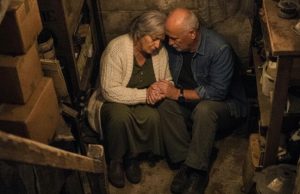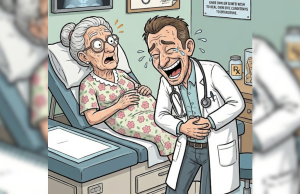
These days, you’re more worn out and stressed out than ever — and that the strength of your relationships, romantic and otherwise, is being tested.
For couples therapist Sinead Smyth with the East Bay Relationship Center in Alameda, California, the onset of COVID-19 brought burnout for both her and her husband of 23 years, who is a health care worker. The couple share two sons, both of whom are in college. Smyth is a certified Gottman Institute therapist.
“We didn’t realize it for a bit, actually, because we weren’t fully burnt out, and we had the two boys at home,” Smyth said. “We’re just coming out of that fog a bit now, and I feel very lucky to have the knowledge that I have through my Gottman therapy training.”
Smyth talked to TODAY about the relationship practices she and her husband use to keep their marriage intact, as well as one that she tries to stay away from because she has seen personally the negative effects.
‘Turning toward’

Smyth said the biggest tip she and her husband use is the concept of “turning toward,” meaning that when one person extends a “bid for connection” — for example, asking how their partner’s day was — the other person “turns toward” by replying and engaging with their day, rather than turning away and shutting down the conversation.
“With COVID, with fatigue or burnout, we disengaged a bit from each other,” Smyth said. “I would start to disengage by escaping into my screen … and not doing a lot of noticing if he was trying to make a bid for a connection. So one of the things that we have really made a point to do is really trying to re-engage, like putting the phones down and really trying to do more of that turning towards.”
Smyth shared that although some of her clients don’t necessarily have marital problems, they do exhibit this pattern of appearing to be disengaged from one another. This practice allows partners to grow closer and engage with each other on a deeper level, she said.
“People are just a bit more disengaged with each other generally, but the antidote is not to further disengage. It’s to actually engage,” she said. “So we’re really trying to be open to that, really on a daily basis. It’s really just a course correction for us.”
Small acts of kindness

It may seem obvious, but small acts of kindness can go a long way, Smyth said. Even just making a cup of coffee for your partner when you know they’ll be up early can mean a lot.
“That would be my takeaway is that it’s about doing certain small, low-level things consistently,” Smyth said.
She underlined that while grand gestures might strengthen bonds, and little, regular acts can do far more to maintain a positive dynamic in a partnership.
“I think that’s the way out of the COVID black hole of relationships that I think a lot of people have found themselves in,” she said.
Noticing and voicing thanks
Smyth said that their marriage has remained strong because she is aware of her husband’s wonderful deeds and expresses her gratitude for them.
“It’s basically looking for what your partner is doing right, and then telling them what you see, as opposed to noticing what’s going right and not saying it, or not looking for what they’re doing right and looking for what they’re doing wrong,” Smyth said.
This tip, she said, helps put the emphasis on what’s working in their relationship. That doesn’t mean that there aren’t issues, she added, but this practice helps with keeping a positive perspective.
Smyth has also found this practice useful with her children, to encourage them when she saw them doing things right so they would continue in that way.
Weekly dates

Smyth said she and her husband have made time for dates once a week since her oldest son was just 5 months old.
“We’re not talking about kids or logistics. We’re asking the big questions like, ‘Where do you see yourself in five years?'” Smyth said. “We’re just really trying to stay with who the person is as a person rather than the logistics and chores and tasks.”
She and her husband continued this practice during pandemic lockdowns, as well, even if it just meant going for a walk on the beach. These weekly dates have been a “mainstay” in their relationship, she said.
“I really do think it is small things that make a difference, rather than saving up all the positivity for one big trip or two big trips a year or something like that,” she said.
What not to do: Speak without pausing in an argument
When asked if there’s something she firmly does not do in her relationship, Smyth said the answer was simple: In an argument, if she has the urge to say something, she never says it immediately.
“In the heat of an argument, it’s not going to come out well,” she said. “So I usually check myself, give myself three seconds.”

She used to say things as soon as they came to mind, but these comments often sounded more like criticisms and didn’t serve her relationship well. Now, she pauses to consider what she wants to say and often ends up realizing it’s not necessary to say it at all.
In long-term relationships, it can be especially helpful to think of a positive statement to share to dial down the argument, she said.
“Don’t fire off when you’re in conflict. Take a break, even if it’s just a few seconds, and make a decision about whether it should be said or not and how you’re going to say it,” Smyth advised.
Since many relationship issues are real and never fully go away, Smyth said, it’s critical to acknowledge that your partner is a different person from you and that sometimes it’s best to just agree to disagree.
With these tips, Smyth said she’s been able to maintain a healthy relationship for 22 years, even through the pandemic and an empty nest, so that her relationship feels more like a friendship.


















